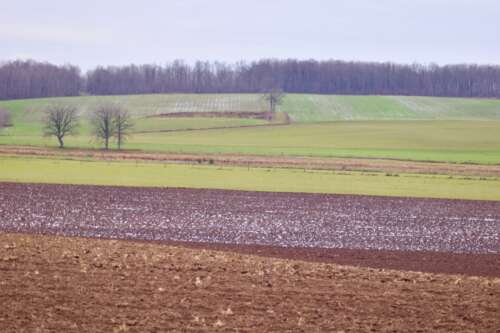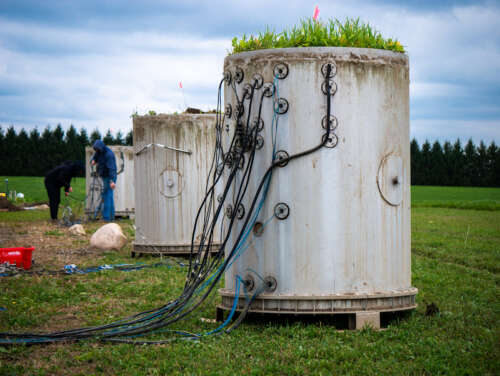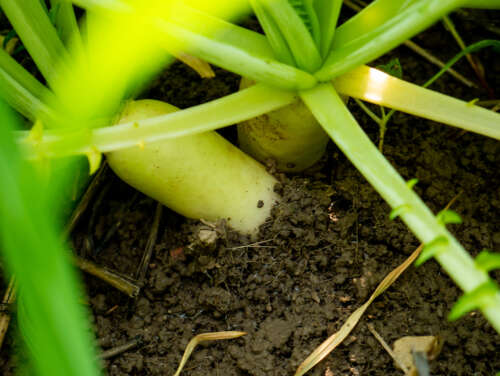
Promoting behaviour change for the sake of healthy soil will be the theme of Dec. 7 Soil Health Research Forum, a knowledge-exchange event held by the University of Guelph’s Soils At Guelph initiative and the Ontario Ministry of Agriculture, Food and Rural Affairs (OMAFRA).
Running from 1-4 p.m., the forum is in recognition of the United Nations World Soil Day and features a number of researchers from U of G, the University of Waterloo and OMAFRA, who will share recent findings and discuss projects that support Ontario’s soil strategy.
Established in 2014, World Soil Day is held each year on Dec. 5 as a way of bringing attention to the importance of healthy soil and to advocate for the sustainable management of soil resources.
Prof. J. Gordon Arbuckle of Iowa State University will be the forum’s keynote speaker. The director of the Iowa Farm and Rural Life Poll, Arbuckle is a noted rural sociologist whose is an expert in improving the environmental and social performance of agricultural systems. His research focuses on the drivers of farmer and agricultural stakeholder action related to soil and water quality.

“We tend to think of soil as providing services, one of those services is crop productivity,” said U of G Prof. Laura Van Eerd, a sustainable soil management expert in the School of Environmental Sciences who will be presenting at the forum. “Food, fuel, fibre and feed are all dependent on healthy soil. The healthier a field is, the more goods and services we can get from it.”
Van Eerd, based at U of G’s Ridgetown Campus, leads an internationally-recognized research program to advance the understanding of biogeochemical cycling of nitrogen and carbon in various agroecosystems. Her research focuses on soil fertility and the use of crop rotations and cover crops in agricultural systems.
Practices that care for the soil, she said, ensure its sustainability and fertility. The carbon storage capacity of healthy soil and the plants that grow in it are directly linked to climate change mitigation, she added.
Along with Professors Kari Dunfield and Claudia Wagner-Riddle, Van Eerd is a co-Director of Soils At Guelph, an initiative to increase awareness of research initiatives, facilitate collaboration and knowledge exchange among stakeholders and to educate on the importance of soil health.

“Soil scientists at the University of Guelph are global leaders, and with the Soils At Guelph initiative, we can apply that knowledge on to the landscape,” Van Eerd said. “The hope is to make progress in improving and maintaining our soil health in Ontario. This research forum provides an opportunity to hear about current research results.”
Van Eerd likened soil health to human health. Maintaining both takes dedication.
“We may know what it takes to maintain health; it is often difficult to do the practices that keep us healthy,” she said. “It’s not easy to dedicate time and effort to preserving and enhancing soil health, and it takes consistent effort to maintain it.
On World Soil Day two years ago, U of G received a $500,000 gift to combat declining soil health in Ontario. The donation was made jointly by Lillie Ann Morris, Glacier FarmMedia, and Bob and Moira Kerr. The gift led to the creation Soils At Guelph.
A video recently made featuring the soil health monitoring station at Elora. [Transcript of video]
Contact:
Prof. Laura L. Van Eerd
lvaneerd@uoguelph.ca